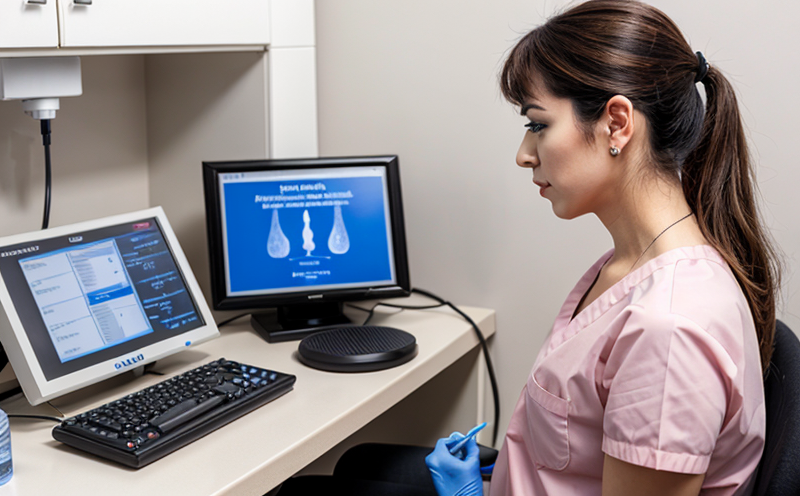Cortisol Metabolite Testing in Zoo Animal Welfare Studies
The welfare of zoo animals is a paramount concern within the global conservation community. Stress management and health monitoring are crucial aspects to ensure these animals thrive both physically and mentally. One key indicator for assessing stress levels in non-human primates, particularly apes and great apes, is cortisol metabolite testing.
Cortisol, the primary glucocorticoid hormone produced by the adrenal cortex, plays a vital role in the animal's stress response. Measuring cortisol metabolites in their urine or feces provides valuable insights into an individual’s physiological state, helping to identify signs of chronic stress and maladaptation. This information is critical for zookeepers and researchers to develop tailored care plans that improve animal welfare.
The process involves collecting the samples, which are then analyzed using advanced chromatographic techniques such as Liquid Chromatography Tandem Mass Spectrometry (LC-MS/MS). This method ensures high sensitivity and specificity, allowing accurate detection of cortisol metabolites even at low concentrations. Proper specimen preparation is essential to avoid contamination or degradation, ensuring reliable results.
Our laboratory adheres strictly to international standards such as ISO 17025 for quality assurance, ensuring that the testing process meets stringent requirements. The data generated from these tests are not only useful for immediate welfare interventions but also contribute significantly to long-term research projects aimed at enhancing zoo animal management practices.
The significance of cortisol metabolite testing extends beyond individual health assessments; it plays a pivotal role in evaluating the effectiveness of different husbandry strategies and enrichment programs. By comparing baseline levels with post-intervention values, researchers can objectively measure improvements or declines in stress indicators.
Furthermore, this service is particularly valuable for assessing animals during times of transition or change within the zoo environment. For instance, introducing a new member to an existing social group often leads to increased stress which can be monitored through cortisol levels. Understanding these dynamics helps zoos create more humane and scientifically supported environments for their residents.
Our team of experienced professionals ensures that every aspect of this testing process—from sample collection guidance to final report generation—is carried out with precision and care. We strive to provide comprehensive, reliable data that contribute positively towards the overall well-being of zoo animals.
Customer Impact and Satisfaction
By leveraging our cortisol metabolite testing service, zoos and research institutions can significantly enhance their ability to monitor and manage animal stress levels effectively. This translates into tangible benefits such as improved health outcomes, reduced veterinary costs due to early intervention, and enhanced reputation among stakeholders.
Our clients consistently report higher satisfaction rates following the implementation of our recommended care plans based on cortisol metabolite test results. These improvements are evident not only in terms of physical health but also behavioral changes that indicate better mental well-being for the animals under study.
We engage closely with each client throughout the project lifecycle, offering tailored advice and support to ensure maximum benefit from this service. Regular follow-up consultations help us refine our strategies based on ongoing data collection, further enhancing our contribution to animal welfare efforts globally.
International Acceptance and Recognition
The importance of cortisol metabolite testing in zoo animal welfare studies has gained international recognition as part of best practices for stress management programs. Organizations like the World Organisation for Animal Health (OIE) recommend such tests to assess the health status of captive animals.
Our laboratory's adherence to rigorous standards, including ISO 17025 accreditation, aligns with global benchmarks ensuring that our results are accepted and respected worldwide. This recognition enhances the credibility of our findings among international partners and stakeholders.
International collaborations have also led to the sharing of best practices and innovations in this field. Our team regularly attends conferences and workshops where we present our latest research findings on cortisol metabolite testing, contributing to the broader discourse around animal welfare.
Competitive Advantage and Market Impact
- Innovative Techniques: Utilizing state-of-the-art LC-MS/MS technology sets us apart from competitors by providing more precise measurements of cortisol metabolites, leading to enhanced accuracy in stress assessments.
- Comprehensive Support: Offering not just testing but also comprehensive interpretation services helps our clients make informed decisions promptly. This includes detailed reports and actionable recommendations tailored specifically for each animal or group studied.
- Global Recognition: Being accredited by internationally recognized bodies like ISO 17025 ensures that our results are accepted globally, giving us an edge over local competitors who may not meet such high standards.
- Sustainable Approach: By focusing on reducing stress and improving overall health through targeted interventions informed by cortisol metabolite testing, we contribute to long-term sustainability goals within the zoo industry.
In today’s competitive market, staying ahead involves continuous innovation and commitment to excellence. Our cortisol metabolite testing service exemplifies these principles, offering unparalleled precision and reliability in stress assessments for zoo animals worldwide.





